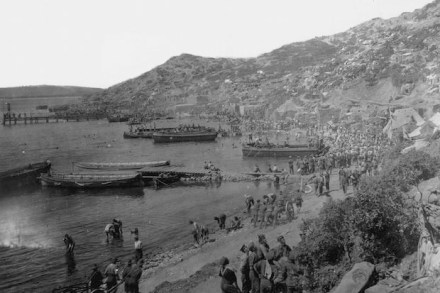Election podcast special: four days to go
In today’s election special podcast, James Forsyth, Isabel Hardman and I attempt to explain why Ed Miliband unveiled a stone engraved with Labour’s six pledges today. Will anyone notice what the pledges are or just discuss the fact they are appearing on a giant stone? We also look at how the stage is set for a last minute Tory surge and why a deal between Labour and the Liberal Democrats is looking increasingly unlikely. You can subscribe to the View from 22 through iTunes and have it delivered to your computer or iPhone every week, or you can use the player below:

















